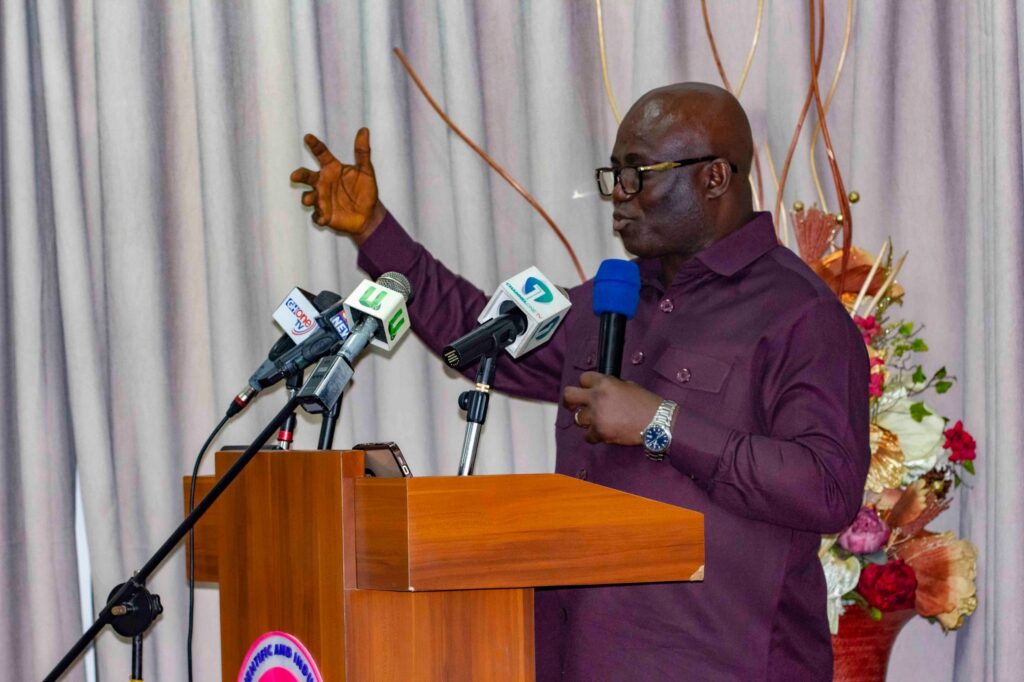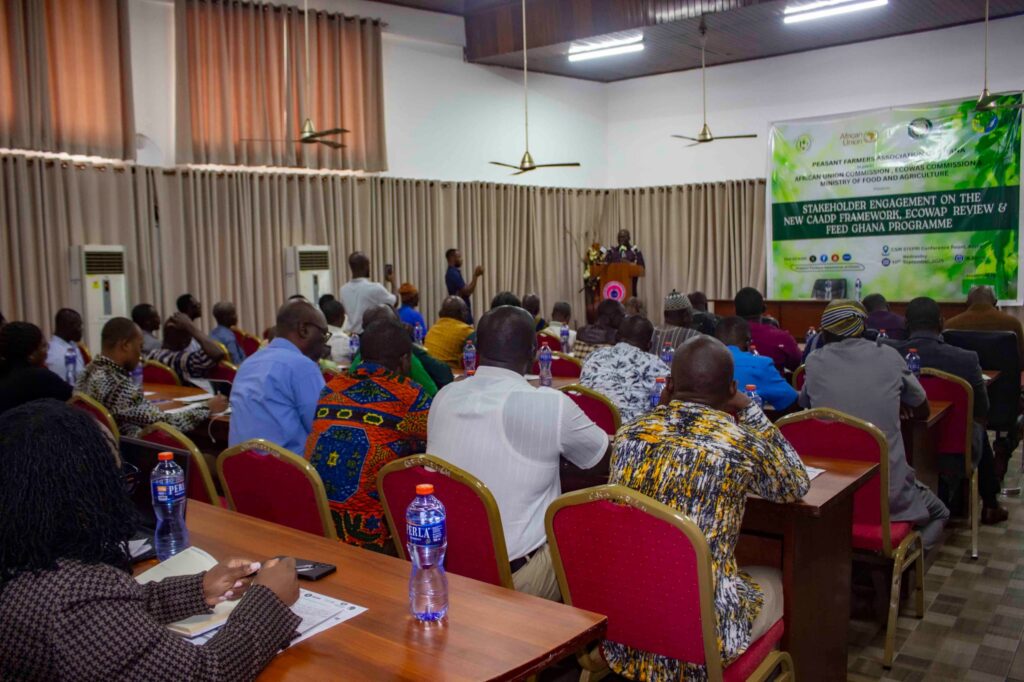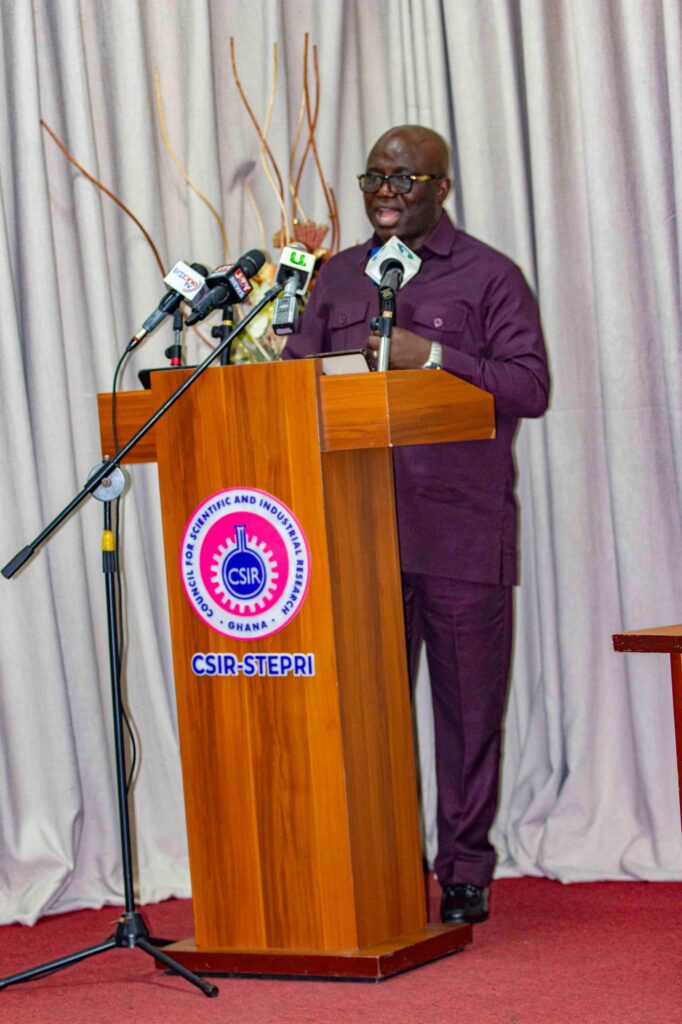The Peasant Farmers Association of Ghana (PFAG), in collaboration with the African Union Commission, ECOWAS Commission, and the Ministry of Food and Agriculture (MoFA), organized a sensitization and awareness creation workshop on the newly adopted Comprehensive African Agricultural Development Programme (CAADP) framework (Kampala Declaration), the ECOWAS Agricultural Policy (ECOWAP), and the Feed Ghana Program (FGP) for stakeholders.
The event brought together a wide range of Non-State Actors (NSAs), including farmer leaders from the Western North, Western, Greater Accra, Central, and Eastern regions, as well as civil society organizations, private sector representatives, academia, and youth groups.
Bismark Owusu Nortey, the Acting Director of PFAG, in outlining the purpose of the gathering, emphasized that the event marked a milestone in NSAs’ collective journey toward deepening understanding, fostering collaboration, and strengthening their roles in shaping agricultural and agri-food system policies in Africa and Ghana. He called for a better-organized NSA platform to hold the government accountable for delivering the objectives of the CAADP, ECOWAP, and the Feed Ghana Program.
The National President of PFAG, Mr. Wepia Addo Awal, in his opening remarks, stressed that the success of Ghana’s agriculture depends largely on smallholder farmers. He acknowledged the progress made by member countries, including Ghana, under the CAADP, but highlighted the challenges and setbacks resulting from the failure of member countries to fully commit to its principles. He pointed out several challenges in the agriculture sector, particularly climate change, inadequate infrastructure, and post-harvest losses, which continue to characterize Ghana’s farming systems. However, he expressed hope that the Feed Ghana Program would address these gaps. He also used the platform to thank the Minister for Food and Agriculture for allocating 15,000 bags of fertilizer to be distributed to members of the Association.
Solidarity remarks were delivered by Ms. Panduleni Elago, Senior CAADP Adviser at the African Union Commission, and Madam Fatmata Seiwoh from the Directorate of Agriculture and Rural Development of the ECOWAS Commission. They emphasized the importance of Non-State Actors engaging with these frameworks, noting that their roles are well integrated into the principles and strategies. Mr. Mohammed Mahamoud from OXFAM also highlighted the organization’s work in fighting poverty and inequality—efforts that align closely with CAADP’s ultimate goal of eliminating hunger.



The keynote address was delivered by the Minister for Food and Agriculture, Hon. Eric Opoku, who elaborated on the components of the Feed Ghana Program. He announced that the government would launch the “Nkoko Nkitinkiti” Programme in the first week of October and also cut sod for the commencement of the “Farmer Service Centers.” He assured stakeholders that the Feed Ghana Program would address the current challenges faced by farmers through the provision of irrigation facilities, inputs, services, and market access. He encouraged farmer groups to register in order to benefit from the program.
Hon. Bright Dermodzi, the Feed Ghana Program Coordinator, articulated the government’s strategic focus on agriculture as the primary driver of economic transformation. He stated that over the next four to five years, the central aim of the President is to use the agricultural sector to fundamentally transform Ghana’s economy.

